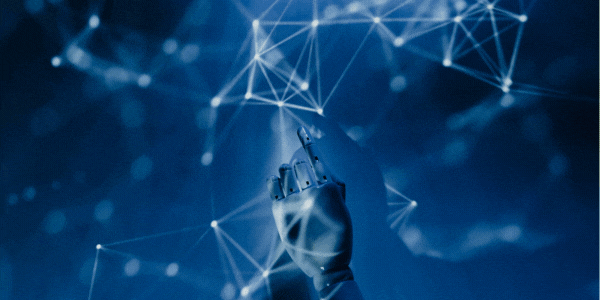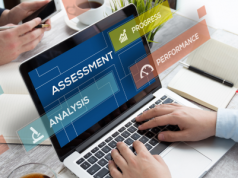 Artificial Intelligence is rapidly changing the working landscape. Technology has fast been revolutionizing, which has brought the concept of AI that combines automation and intelligence to produce marvelous results. Corporates have acknowledged the importance of AI at work, with many large organizations already adopting AI in the workplace to automate processes using software and robots having human intelligence.
Artificial Intelligence is rapidly changing the working landscape. Technology has fast been revolutionizing, which has brought the concept of AI that combines automation and intelligence to produce marvelous results. Corporates have acknowledged the importance of AI at work, with many large organizations already adopting AI in the workplace to automate processes using software and robots having human intelligence.
Artificial intelligence is different from automation. In automation, processes are run at a specified time with programmed commands. While AI automates software to think and act like a human being would in a rational situation. AI uses cognitive thinking to perform a task whereas automation only performs predefined programmed tasks. AI can perform analysis and make decisions for you, simultaneously adapt itself to changes in processes, and even learn and identify improvement opportunities.
Register for AMCAT | India’s Leading Fresher’s Assessment And Job Site (myamcat.com)
Let us look at a few examples below of how Artificial Intelligence operates in the workplace:
- AI can select suitable candidates for the interview process among dozens of applications received, by matching a job description with a resume. After selection, HR Chatbots can be deployed to interact with candidates to obtain preliminary information. Further, during the interview process, the verbal and non-verbal communication of the candidate can be analyzed using a video camera.
- Robots and Drones can safely navigate along the way and deliver products to the customer.
- AI in cyber security identifies spam emails and filters them out to prevent phishing attacks.
- AI performs data mining by extracting relevant data trends to be used in decision-making.
- Voice command can do your basic tasks like calling a colleague or booking a meeting room.
- Chatbots can provide customer support by answering basic customer queries and being available to queries 24 hours 7 days. Chatbots relieve the support staff to focus on major tasks.
AI saves time for company employees so that they focus on critical human beings. Basis repetitive tasks are automated, and productivity of the staff is increased. Employees are happier and satisfied with their jobs as they no longer have to do monotonous tasks and can rather focus on skilled and creative work. AI also ensures objective decision making by eliminating human biases. If programmed appropriately, processes can run with fewer or nil clerical errors.
Like every coin has two sides, AI also has certain drawbacks. Given the benefits above, many companies are still not on AI because of its high implementation cost which may run into millions. Implementation requires the appointment of data scientists and engineers who charge high salaries and may not be affordable for a small company. AI technology also works on up-to-date software and requires regular system updates to meet changing business needs and expandability. Besides high costs, there are certain tasks which need human intervention and AI cannot perform. For example, interacting with colleagues and managing team members, making moral and ethical decisions, or providing creative solutions.
AI has its pros and cons in the workplace, and it depends on how corporations handle both. There is a lot of potential for AI in the workplace, making humans increase their productivity and focus on critical tasks. We already see AI in our daily lives, and in the coming decade, the scope for AI is only going to increase.

























